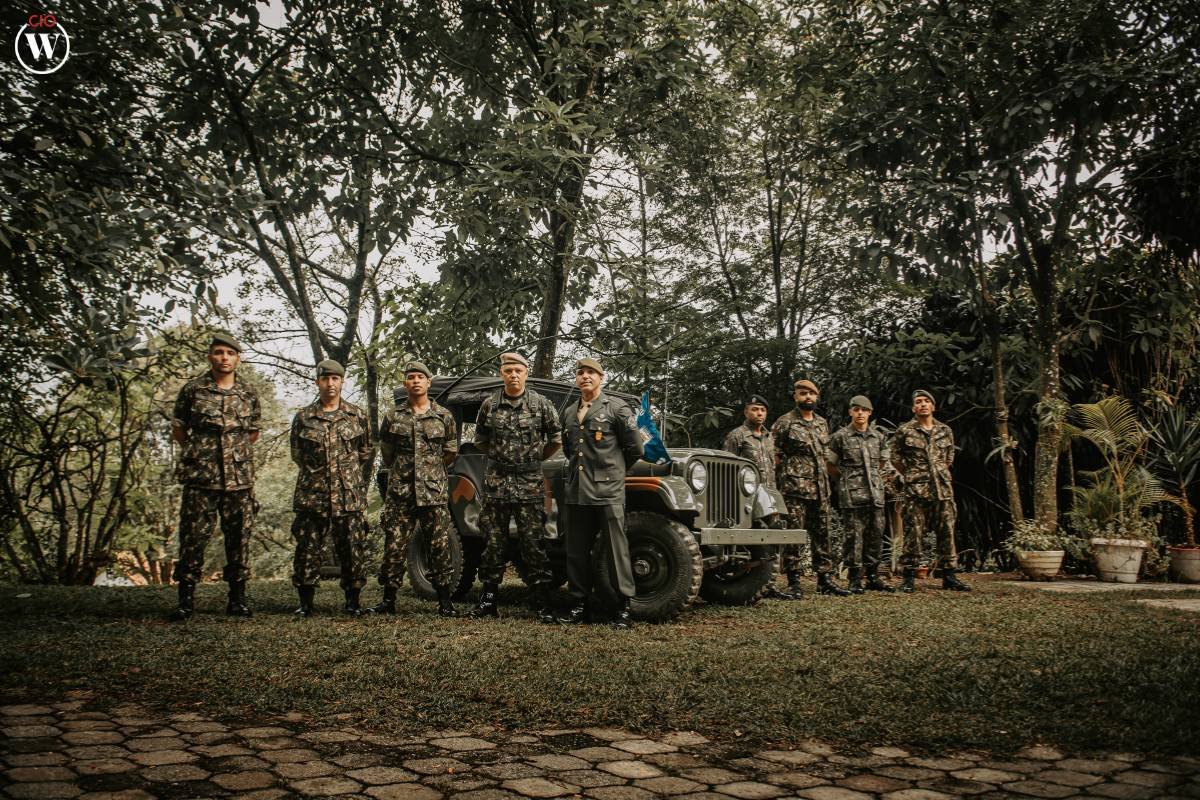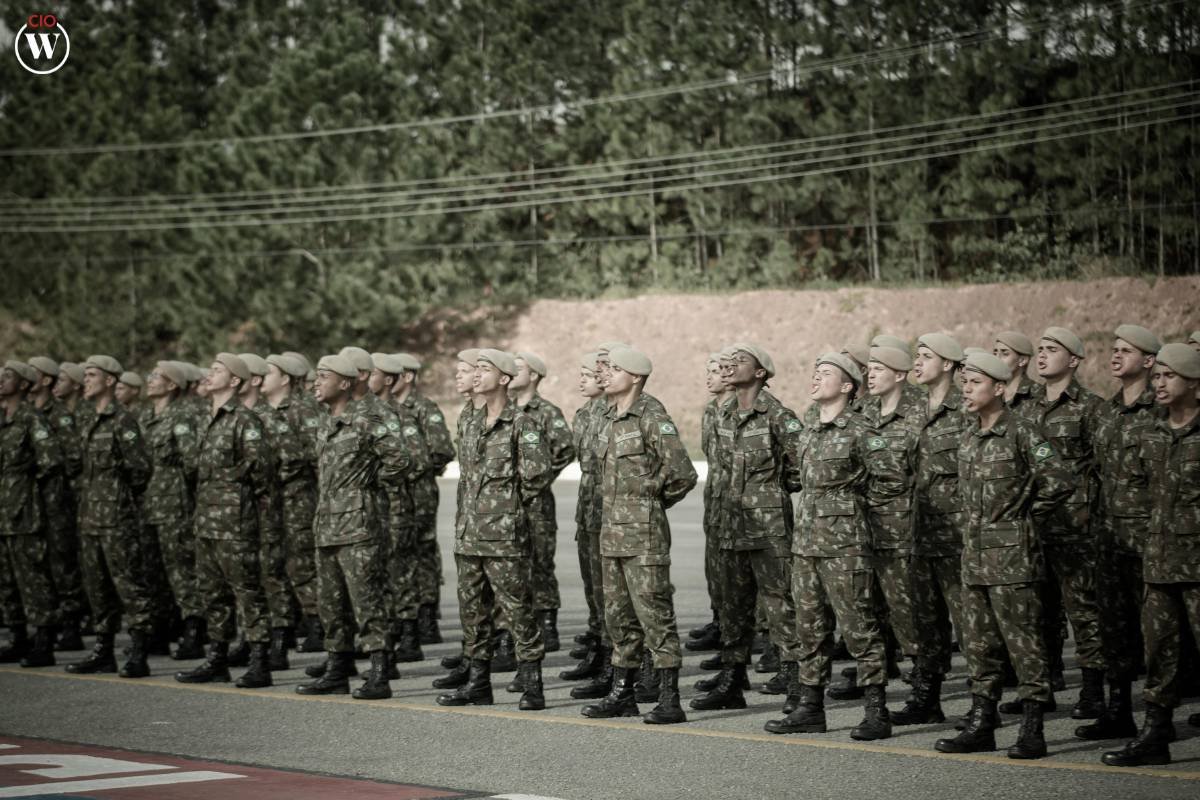In the harsh environment of active duty, leadership is a critical quality that sets good commanders apart from other officers. A military commander must possess a wide range of abilities, competencies, and characteristics that promote unity, instill confidence, and propel mission achievement in the face of difficulty. The core of military leadership transcends rank and position, influencing the fate of nations and the lives of those who serve, and includes everything from strategic insight and tactical proficiency to ethical integrity and steadfast commitment. We examine the importance, influence, and lasting legacy of the fundamental qualities of a military leader in this in-depth investigation.
Here are some important Attributes of Military Leader:
1. Strategic Vision
At the heart of effective military leadership lies strategic vision, the ability to conceive, articulate, and execute a clear vision for achieving mission objectives. Military leaders must possess the foresight to anticipate future challenges, assess risks, and formulate comprehensive plans that align with organizational goals and national interests. By envisioning the broader strategic landscape and charting a course of action that leverages available resources and capabilities, leaders inspire confidence and instill a sense of purpose among their troops.
2. Tactical Proficiency
In addition to strategic vision, tactical proficiency stands as a fundamental attribute of military leadership, enabling commanders to adapt to dynamic battlefield conditions, seize opportunities, and outmaneuver adversaries. From mastering the art of maneuver warfare to employing innovative tactics and techniques, military leaders must demonstrate mastery of their craft and the ability to lead by example on the front lines. By honing their tactical skills and fostering a culture of continuous learning and improvement, leaders empower their units to achieve decisive victories on the battlefield.
3. Integrity and Honor

Integrity and honor serve as the bedrock of military leadership, defining the character and moral compass of commanders entrusted with the lives of their subordinates. Military leaders must uphold the highest standards of ethical conduct, demonstrating honesty, integrity, and accountability in all their actions and decisions. By leading with honor and integrity, commanders earn the trust and respect of their troops, fostering a culture of loyalty, teamwork, and mutual respect within their units.
4. Courage and Resilience
Courage and resilience are indispensable attributes of a military leader, enabling commanders to confront adversity, overcome obstacles, and inspire others to persevere in the face of danger and uncertainty. Whether facing enemy fire on the battlefield or navigating complex geopolitical challenges, leaders must exhibit unwavering courage and determination to uphold the principles of duty, honor, and service. By demonstrating resilience in the face of adversity and leading by example with courage under fire, military leaders inspire confidence and instill a sense of purpose among their troops.
5. Adaptability and Innovation
In an ever-evolving threat environment, adaptability and innovation are essential attributes of military leadership, enabling commanders to anticipate emerging threats, exploit opportunities, and stay ahead of the curve. Military leaders must possess the flexibility to adapt their strategies and tactics to changing circumstances, leveraging emerging technologies and best practices to maintain a competitive edge on the battlefield. By fostering a culture of innovation and embracing change, leaders empower their units to achieve strategic objectives with agility and efficiency.
6. Decisiveness and Accountability
Decisiveness and accountability are critical attributes of military leadership, ensuring commanders make timely, informed decisions and take responsibility for their actions and their consequences. In high-pressure situations where lives are on the line, leaders must demonstrate the confidence and decisiveness to make tough calls under duress, weighing risks and rewards to achieve mission success. By holding themselves and their subordinates accountable for their actions, military leaders foster a culture of excellence, discipline, and personal responsibility within their units.
7. Empathy and Empowerment
Empathy and empowerment are transformative attributes of military leadership, enabling commanders to understand the needs and concerns of their troops and empower them to reach their full potential. Military leaders must cultivate empathy and compassion for the welfare of their soldiers, recognizing their sacrifices and addressing their physical, emotional, and psychological needs. By fostering a supportive environment where every member feels valued, respected, and empowered to contribute to the mission, leaders build cohesive, resilient teams capable of overcoming any challenge.
8. Strategic Communication

Effective communication is a cornerstone attribute of military leadership, enabling commanders to articulate their vision, inspire confidence, and build consensus among their troops and stakeholders. Military leaders must possess the ability to communicate clearly, concisely, and persuasively, conveying complex ideas and instructions with precision and clarity. By fostering open, transparent communication channels and actively listening to feedback from their subordinates, leaders ensure unity of effort and alignment of purpose across their units.
9. Team Building and Collaboration
Team building and collaboration are essential attributes of military leadership, fostering a culture of teamwork, camaraderie, and mutual support within units and across organizational boundaries. Military leaders must cultivate a spirit of collaboration and inclusivity, leveraging the diverse talents and perspectives of their teams to achieve shared goals and objectives. By fostering a climate of trust, cooperation, and mutual respect, leaders build cohesive, high-performing teams capable of accomplishing the most challenging missions.
10. Strategic Planning and Execution
Strategic planning and execution are fundamental attributes of military leaders, enabling commanders to translate strategic objectives into actionable plans and operational realities. Military leaders must possess the ability to develop comprehensive, synchronized campaign plans that integrate all elements of national power and leverage available resources to achieve desired outcomes. By overseeing the execution of operational plans with precision and attention to detail, leaders ensure the effective utilization of military forces and the attainment of strategic objectives with maximum efficiency.
11. Ethical Leadership and Mentorship
Ethical leadership and mentorship are foundational Attributes of a Military Leaders, guiding commanders in their interactions with subordinates and shaping the next generation of leaders. Military leaders must exemplify the highest standards of ethical conduct, serving as role models and mentors for their troops and instilling core values such as integrity, respect, and selfless service. By investing in the professional development and well-being of their subordinates, leaders cultivate a culture of excellence and accountability that fosters individual growth and organizational success.
12. Risk Management and Decision Making

Risk management and decision-making are critical attributes of military leadership, enabling commanders to assess threats, evaluate opportunities, and mitigate potential risks to mission success. Military leaders must possess the judgment and discernment to make informed decisions under uncertainty, weighing the potential costs and benefits of alternative courses of action. By employing risk management principles and decision-making frameworks, leaders minimize operational risks and maximize the likelihood of achieving mission objectives with minimal adverse consequences.
13. Innovation and Adaptability
Innovation and adaptability are essential attributes of military leadership, enabling commanders to anticipate emerging threats, exploit technological advancements, and stay ahead of evolving challenges in the modern operating environment. Military leaders must foster a culture of innovation and continuous improvement within their units, encouraging creativity, experimentation, and learning from failure. By embracing new technologies, concepts, and methodologies, leaders empower their organizations to adapt to changing circumstances and maintain a competitive edge on the battlefield.
Conclusion
In summary, a military commander must possess a wide range of abilities, competencies, and characteristics that are critical for success in the fast-paced, intricate operating environment of today. A combination of intrinsic abilities, learned behaviors, and developed competencies are necessary for effective military leadership, ranging from strategic vision and tactical ability to integrity, courage, and resilience. Through the demonstration of these qualities and the setting of an example, commanders inspire trust, promote unity, and propel missions forward, guaranteeing the safety, security, and prosperity of their countries as well as the well-being of individuals under their supervision.









